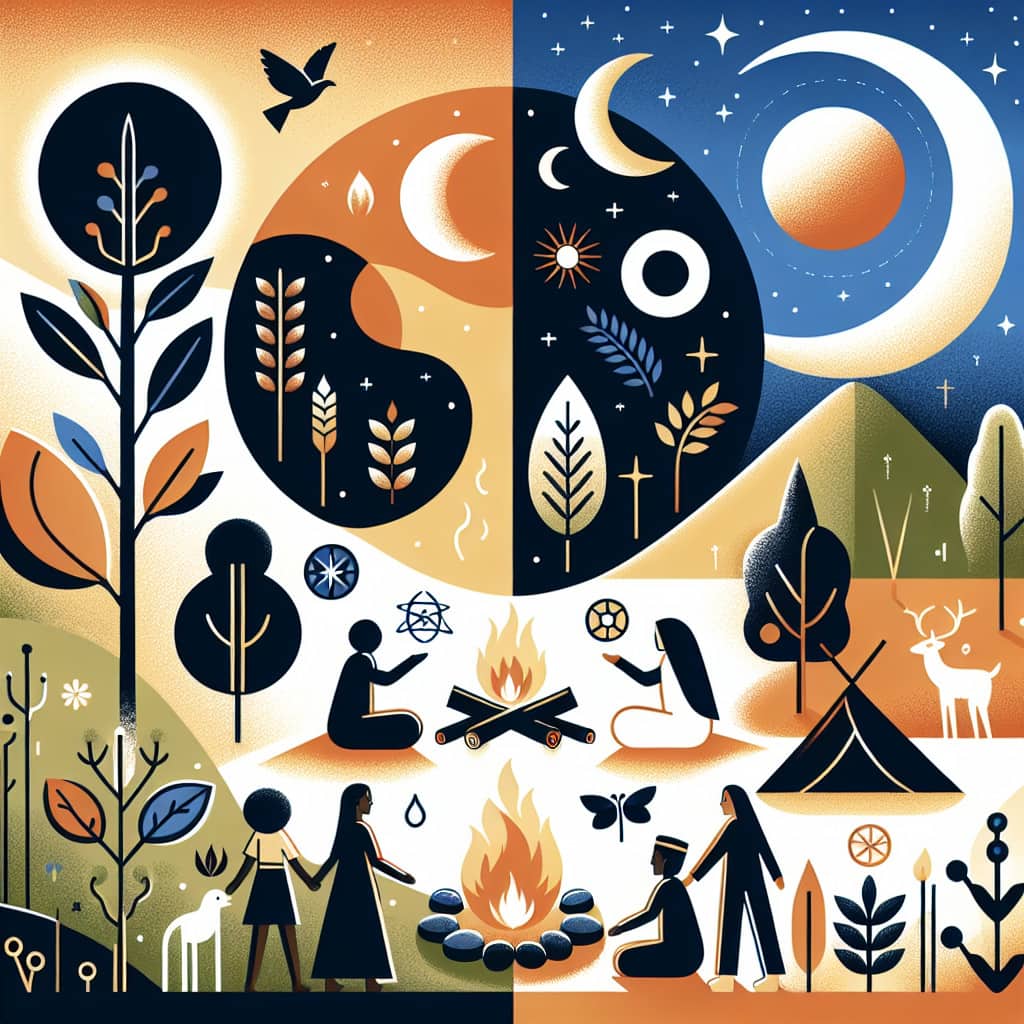The term “pagan” has been used for centuries to describe those who practice non-mainstream religious beliefs and practices. While the term has a long and complex history, its meaning has changed over time. This article will explore the meaning of “pagan” in English and provide an understanding of its varied interpretations. We will look at the history of the term and its current usage, as well as its relationship to modern religious beliefs and practices. By the end of this article, readers will have a better understanding of the term and its implications.
The Meaning of Pagan in English
Paganism is an umbrella term for a variety of spiritual, religious, and cultural practices that have been historically held by people who do not adhere to an organized religion. It is an umbrella term that covers a wide range of beliefs and practices, including polytheism, animism, shamanism, pantheism, ancestor veneration, and nature worship. Pagan practices often involve rituals and ceremonies, as well as the use of symbols, art, and music.
What is Paganism?
Paganism is a broad category of religious, spiritual, and cultural beliefs and practices that have been historically held by people who do not adhere to an organized religion. It is an umbrella term that covers a wide range of beliefs and practices, from polytheism and animism to shamanism, pantheism, ancestor veneration, and nature worship. Paganism is an ancient spiritual tradition, one that has been practiced for thousands of years by people all over the world.
Paganism has no central authority or hierarchy, and there are no set doctrines or dogmas. Paganism is a diverse spiritual path that is based on nature and the cycles of the seasons. Pagans honor the Earth and its many forms of life, and strive to live in harmony with nature and the environment.
What are the Different Types of Paganism?
Paganism is a diverse spiritual path that encompasses many different types of beliefs and practices. The following are some of the more common types of Paganism:
Polytheism
Polytheism is the belief in multiple gods or goddesses. Pagans who practice polytheism typically honor a pantheon of gods and goddesses, each of which is associated with a different aspect of life and the natural world.
Animism
Animism is a belief system that views all living things as possessing a spirit or soul. Animists believe that even inanimate objects, such as rocks and trees, have a spirit that should be respected and honored.
Shamanism
Shamanism is an ancient spiritual practice that involves connecting with the spirit world through ritual and ceremony. Shamans often act as mediators between the physical and spiritual worlds, and work with spirit helpers to bring healing and insight to their community.
Pantheism
Pantheism is the belief that all of reality is divine, and that the divine is present in all things. Pantheists believe that all living things are interconnected, and that there is an underlying unity in the universe.
Ancestor Veneration
Ancestor veneration is the practice of honoring and respecting one’s ancestors. In many Pagan traditions, ancestors are seen as sources of wisdom and guidance, and are often invoked in times of need.
Nature Worship
Nature worship is the practice of honoring and celebrating the natural world. Pagans who practice nature worship may honor the Earth, the sun, the moon, and other aspects of the natural world.
What are the Principles of Paganism?
Pagans have a variety of beliefs and practices, but there are a few core principles that are shared by most Pagans. These principles include:
Respect for Nature: Pagans have a deep respect for nature and the environment, and strive to live in harmony with the natural world.
Honoring the Divine: Pagans honor the divine in all things, and strive to live in a way that is in alignment with their spiritual beliefs.
Personal Responsibility: Pagans believe that individuals are responsible for their own actions, and that all of our choices have consequences.
The Wheel of the Year: Pagans observe the cycles of the seasons, and celebrate the turning of the wheel of the year. This is marked by eight major holidays, known as sabbats.
Tolerance and Inclusivity: Pagans strive to be tolerant and inclusive of all people and beliefs, regardless of race, gender, sexual orientation, or religion.
Conclusion
In conclusion, Paganism is a diverse spiritual path that encompasses many different types of beliefs and practices. It is based on a deep respect for nature and the divine, and a belief in personal responsibility. Pagans observe the cycles of the seasons and celebrate the turning of the wheel of the year with eight major holidays, known as sabbats. Pagans also strive to be tolerant and inclusive of all people and beliefs, regardless of race, gender, sexual orientation, or religion.
In conclusion, the term ‘Pagan’ is an umbrella term used to describe a wide range of spiritual beliefs and practices that are not part of the mainstream religions of Christianity, Judaism, or Islam. It is important to note that Paganism is not a single, unified religion, but rather a broad term that encompasses a variety of spiritual beliefs and practices. Many Pagans today identify as “earth-centered” and view the natural world as sacred and interconnected. Paganism is often seen as a form of nature-based spirituality, and many Pagans believe in the interconnectedness of all life and the importance of living in harmony with the natural world. Ultimately, the meaning of Paganism is up to the individual and can be interpreted in many different ways.





